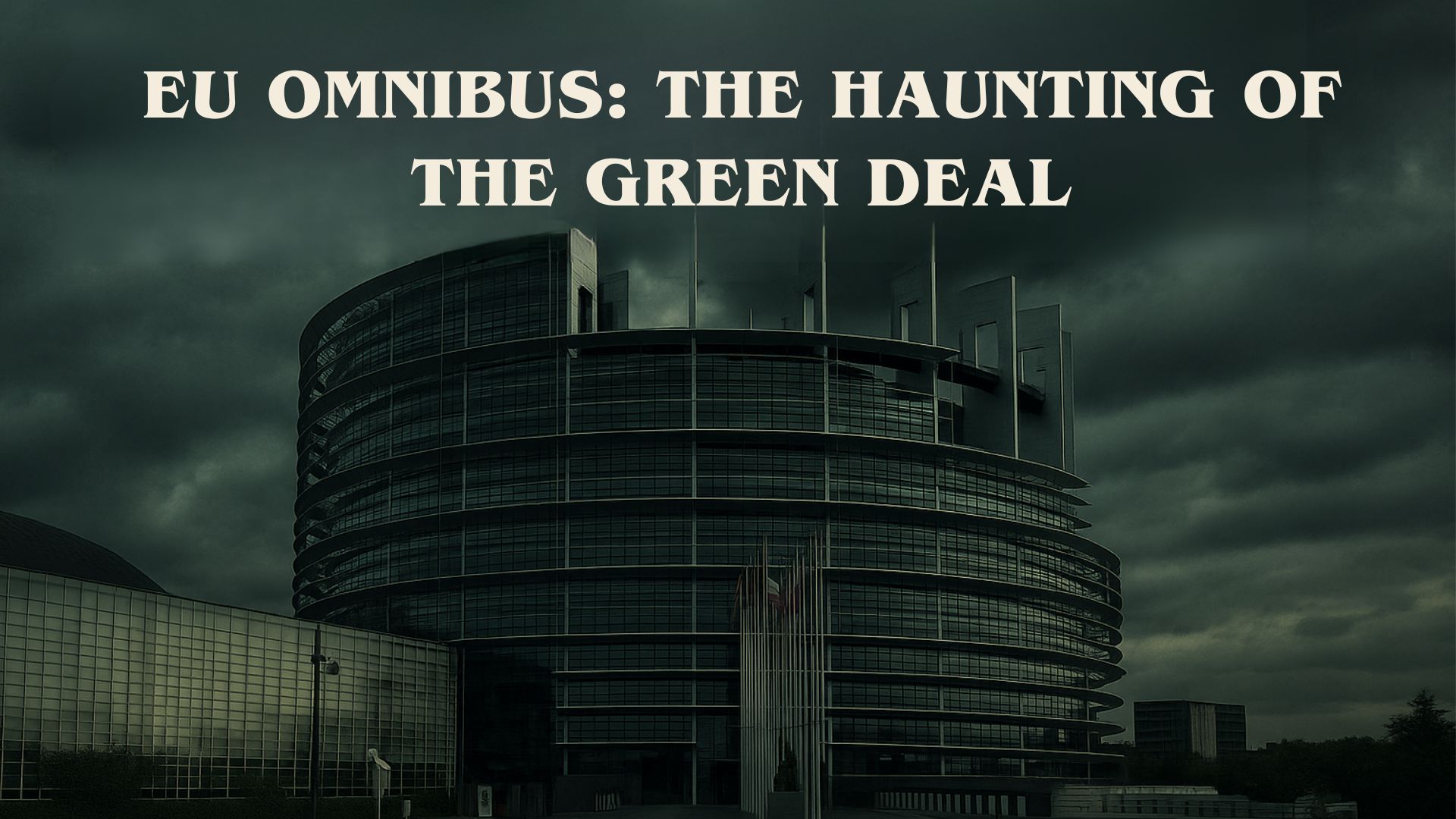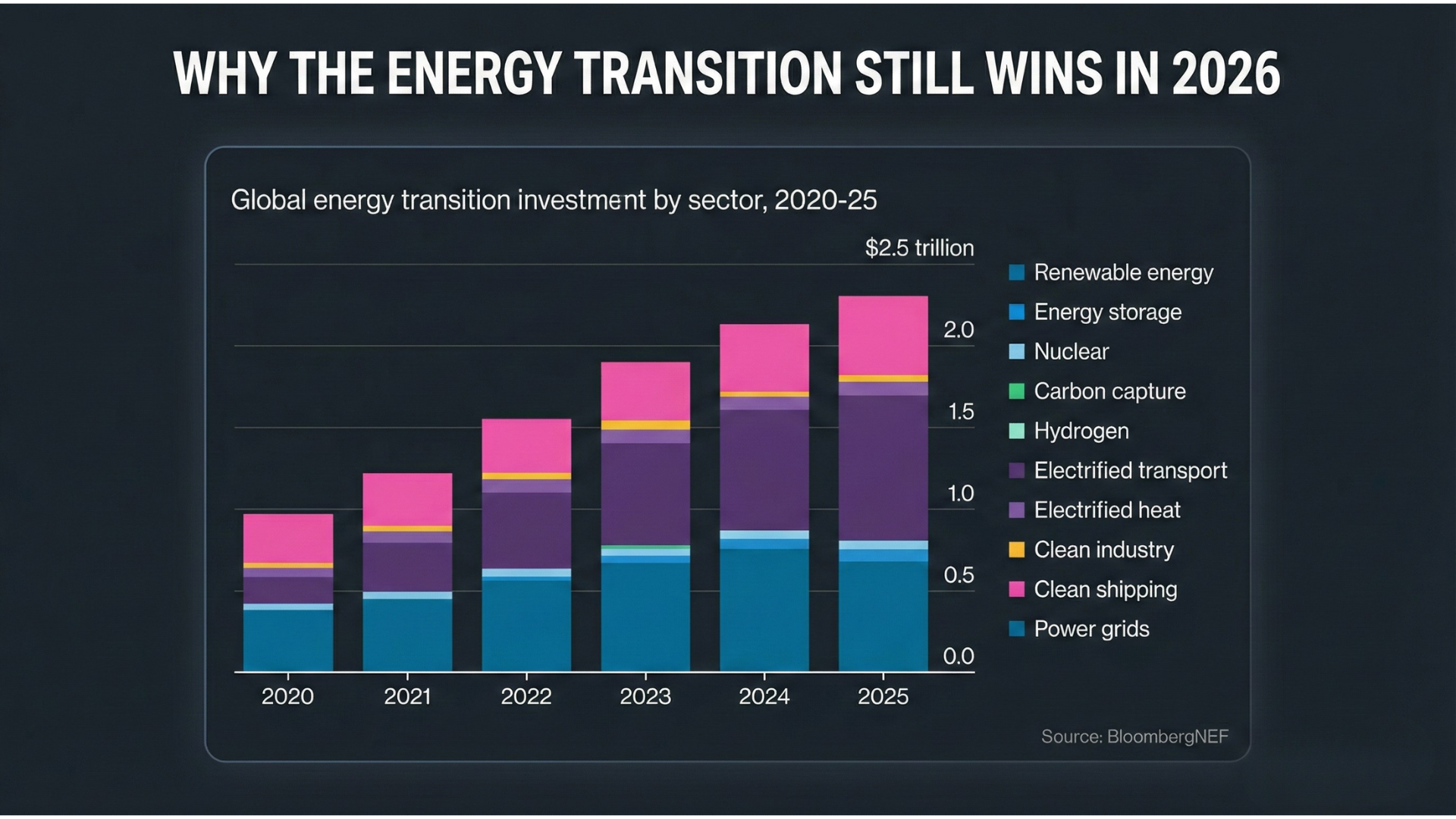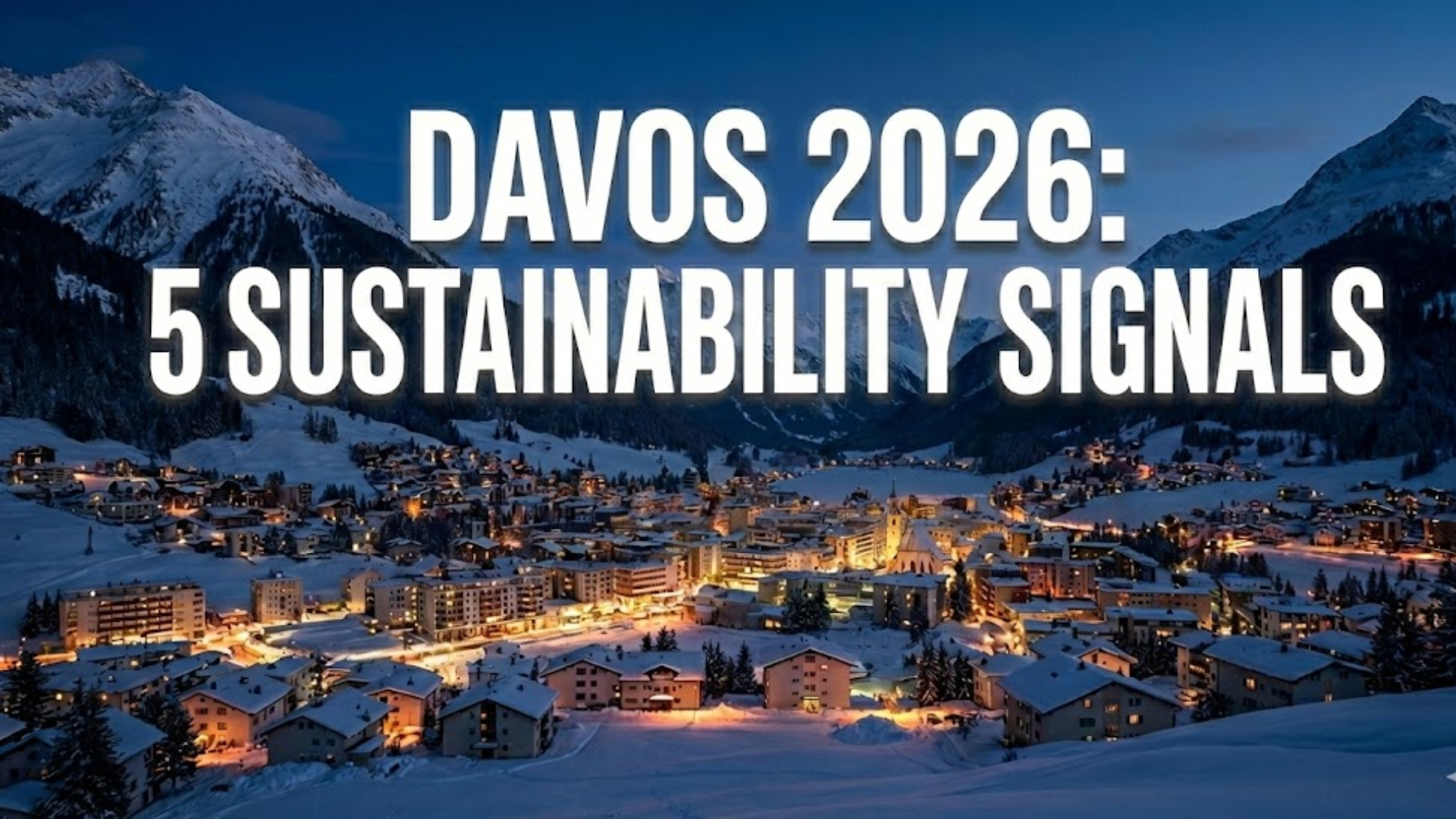

EU political maneuvering could mean more Green Deal cuts
Exxon files lawsuit to block California Climate Rules
UN reports ahead of COP30 show big challenges
Bill Gates asks COP30 delegates if climate financing would be better on humans
US private sector pushes back on Trump 2.0 climate agenda
It’s been a spooky year so far in sustainability, and this Halloween, it’s getting even scarier. In the EU, political wrangling threatens further cuts to the Green Deal; the California Climate Disclosure Rules face more litigation; and, the international climate talks (COP30) in Brazil face big challenges.
In the EU, last week’s vote against the ‘Omnibus’ simplification in the European Parliament triggered a new round of negotiations. The proposal failed because socialist members opposed the measure over what they viewed as overly severe cuts, while far-right members pushed for even greater cuts to the Corporate Sustainability Reporting Directive (CSRD) and the Corporate Sustainability Due Diligence Directive (CSDDD).
The delays sparked outrage from EU leaders. The President of the EU Parliament, Roberta Metsola, said she was being pressured to “move, move” - citing a letter signed by 22 member states. German Chancellor Friedrich Merz called the Omnibus delay “unacceptable,” as it threatens Europe’s competitiveness.
Metsola and EU Commission President Ursula von der Leyen have until November 13th to reach a compromise that will pass on the next vote. This will be difficult because the majority coalition of the European People’s Party (EPP) with socialist and green parties, which helped get von der Leyen re-elected, was fractured over the EPP’s side-deals with the far right.
In a recent FT interview, Metsola said “I’m ready to work with everyone”, and “things are different” after far-right parties won big in recent EU elections. This signals that the EPP will likely work with the far right and, if they do, there will be more cuts.
Tsvetelina Kuzmanova, of the University of Cambridge Institute for Sustainability Leadership, said, “This is a worrying signal for Europe’s credibility. The focus has shifted from improving the rules to using them as bargaining chips.”
👉 Prefer to get Sustainability Simplified straight into your inbox instead of LinkedIn? Sign up to our email list here.
2. Exxon Sues to Block California Climate Rule

Back in 2023 - shortly after California approved its groundbreaking climate disclosure laws, the US Chamber of Commerce filed a lawsuit asserting “California’s corporate disclosure laws…violate the First Amendment by forcing businesses to engage in subjective speech.”
To explain, the First Amendment to the US Constitution protects US citizens’ right to free speech. It also prevents “compelled speech” where an individual or entity is forced to communicate a message they do not wish to convey. It’s considered the opposite of free speech: instead of being punished for saying something, a person faces consequences for not saying something.
In August, a federal judge denied an injunction in this case (an injunction would pause the implementation of this policy), which allowed California to proceed while the litigation continues. In practical terms, this means companies with more than $500 million total annual revenue that are ‘doing business in California’ must report on their material climate risks and emissions starting on January 1st, 2026 - just two months from now.
As the clock ticked down to this deadline, late last Friday, oil giant ExxonMobil filed a lawsuit asserting the same ‘compelled speech’ claim. The lawsuit also claims that the methodology required in the draft rule (i.e., the Greenhouse Gas Protocol) would misrepresent Exxon’s emissions, that the rule should only encompass emissions from activities within the state, that Exxon already reports sufficient climate risks in its annual financial reporting, and that the judge should block the state from enforcing these laws.
Tara Gallegos, from California Gov. Gavin Newsom’s office said it was “truly shocking that one of the biggest polluters on the planet would be opposed to transparency,” and that the rules “have already been upheld in court and we continue to have confidence in them.”
3. Big Challenges Ahead of COP30

The annual international climate meeting to implement the Paris Accord (COP30 in Belem, Brazil) starts in just 10 days. In the lead-up to the event, the UN has released a series of reports that show the dire state of climate financing and decarbonization.
The Adaptation Gap Report shows funding for developing countries (money to help adapt to the changing climate) fell by 7% in 2023. It also revealed that the goal set back in 2021 (i.e., the Glasgow Climate Pact) to double adaptation finance from 2019 levels by 2025 will not be met. Based on these funding forecasts, funding won’t reach anywhere near the $310 billion the UN estimates will be needed by 2035.
A UN synthesis of the 64 new Nationally Determined Contributions (NDCs) – the emissions reduction pledges of each country - showed that the combined efforts will yield only a 10% reduction in 2035 compared with 2019 levels. While this is the first significant decline the UN has predicted, it falls far short of the 60% needed to limit warming to 1.5°C. However, UN’s Climate Chief Simon Stiell says, “Countries are making progress and laying out clear stepping stones towards net zero emissions. Change is not linear. Some countries have a history of overdelivering.” Stiell believes the lower costs of renewables and growing economic case for climate action will accelerate decarbonization.
This dim outlook comes in a year marked by climate action rollbacks, typified by the world’s second-largest polluter, the US, expected absence from the event.
4. Bill Gates Suggests UN ‘Pivots’ on Climate Spend

Historically, an advocate of climate action, having recently penned a book on “How to Avoid a Climate Disaster,” former Microsoft CEO Bill Gates wrote a letter titled “Three tough truths about climate.” In it, he asks, “Everyone at COP30 to ask: Is the money designated for climate being spent on the right things?” To which he answers, he believes not.
Instead, he thinks climate investments should be more targeted and that more funding should be directed toward poverty alleviation and health. The memo received mixed reviews, with Ted Nordhaus, of the Breakthrough Institute, calling it a “sober-minded assessment of the current research.” Whereas Ioannis Ioannou of London Business School said, “I get where he’s coming from — a call for pragmatism in a world of shrinking aid budgets. But his reasoning feels dangerously short-sighted.”
5. US Businesses Pushback on Trump 2.0 Climate Agenda

In some less scary news, the private sector is beginning to show signs that the Trump administration may have gone too far in its anti-climate action agenda.
Business leaders have attacked the EPA’s plan to end the ‘endangerment finding,’ the basis for most US climate policies, saying the end of the rule could result in stricter state-level rules and more litigation. Zach Friedman of Ceres said, “This is something that the vast majority of industry didn’t ask for and doesn’t want.”
Additionally, the Foundation for American Innovation released an open letter this week in support of the Emissions Reporting Program, which the EPA said it would repeal last month. The letter claims the repeal will actually cost businesses more and will render the 45Q tax credit (for carbon capture projects) obsolete. Instead, they give some better ways the program could be streamlined and improved.
The views expressed on this website/weblog are mine alone and do not necessarily reflect the views of my employer.
Other Notable News:
Net Zero
Following the Net Zero Banking Alliance (NZBA) 's shutdown earlier this month, its sister group, the Net Zero Asset Managers (NZAM), has reopened with looser membership criteria. The updated commitment keeps the 1.5°C goal but drops the 2050 deadline, weakens offset and 2030 target requirements, and gives signatories three months to sign on.
Carbon Accounting
Climate Regulations
Trump 2.0
Global Weirding
Notable Podcasts:
In the most recent episode of Pitching Progress, my BCG colleague Vinay Shandal talks about the future of low-carbon steel. To discover how to decarbonize global steel production, he speaks with Parker Meeks, President and CEO of Utility Global, on how they can use their tech to retrofit existing steel facilities to be greener.







